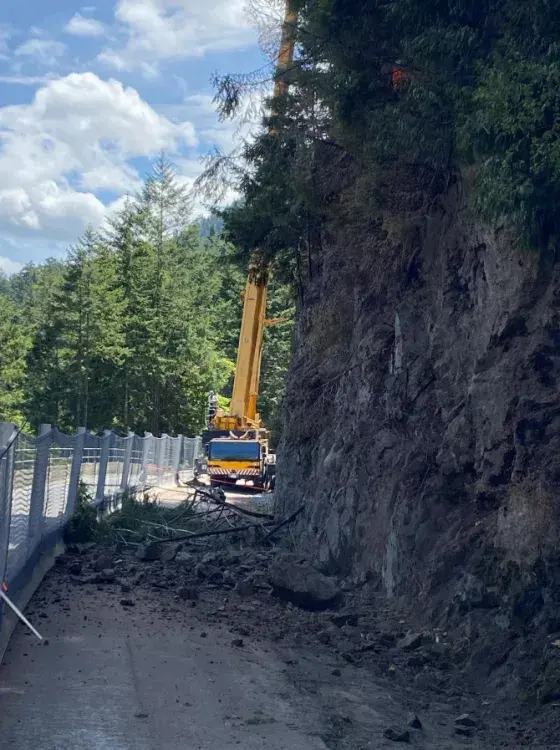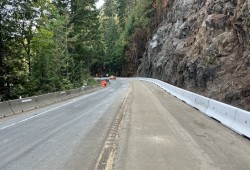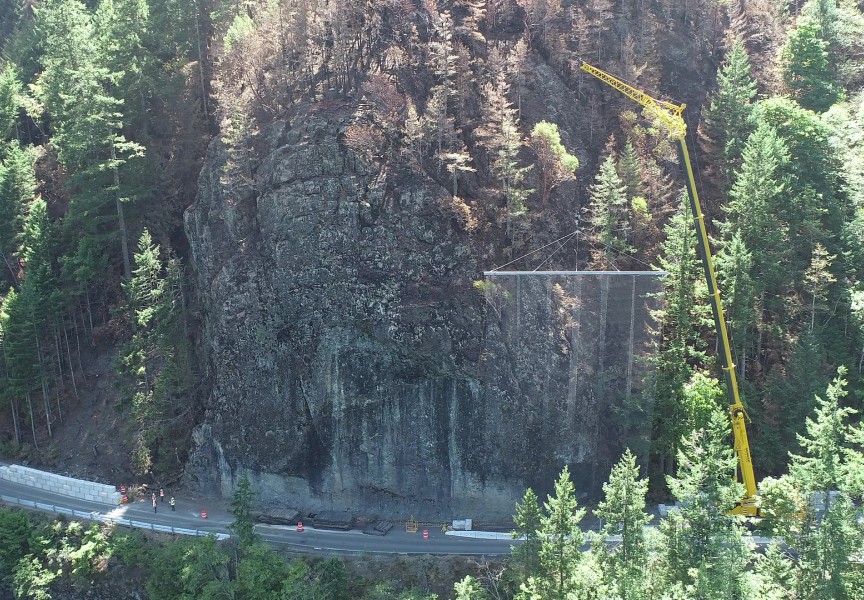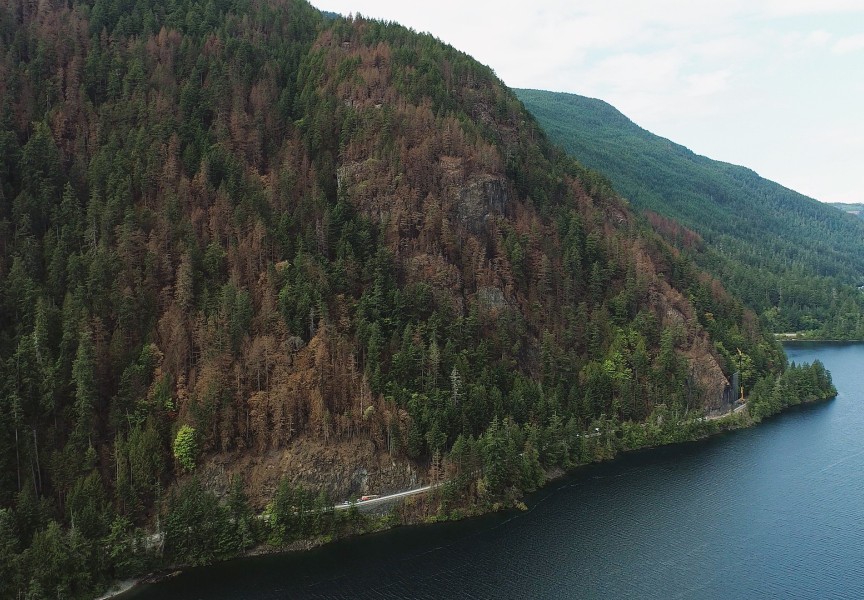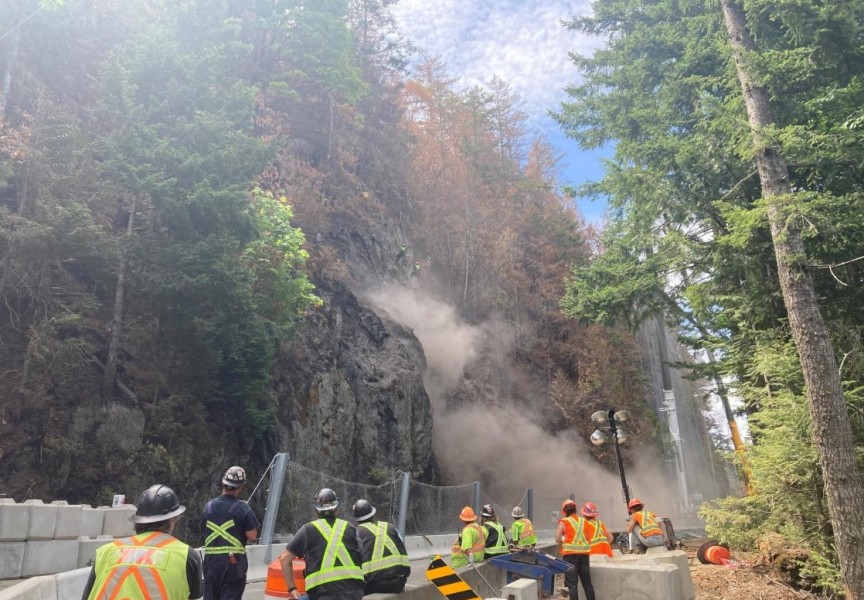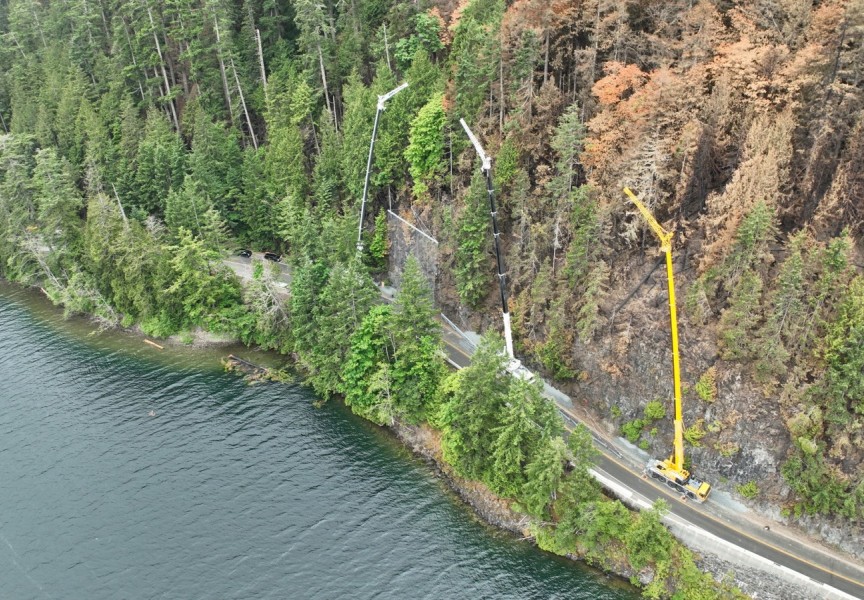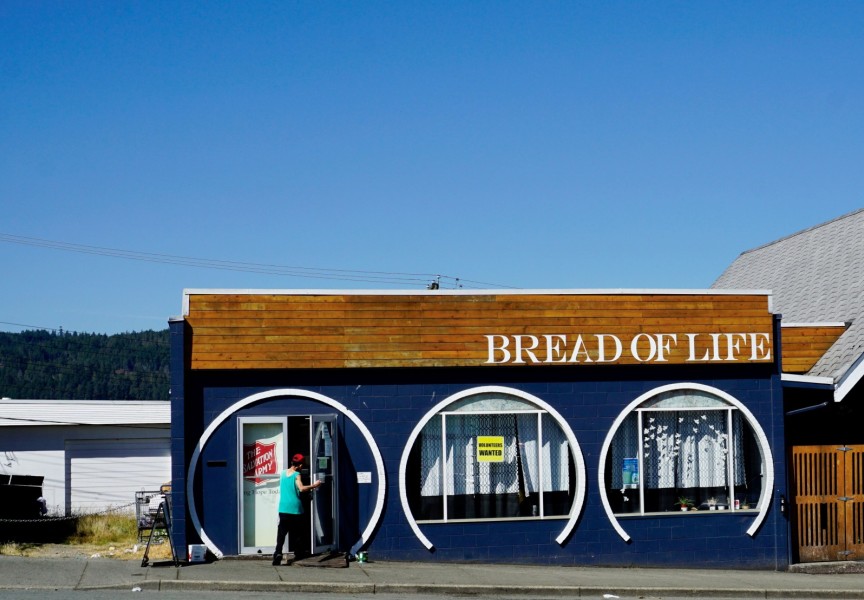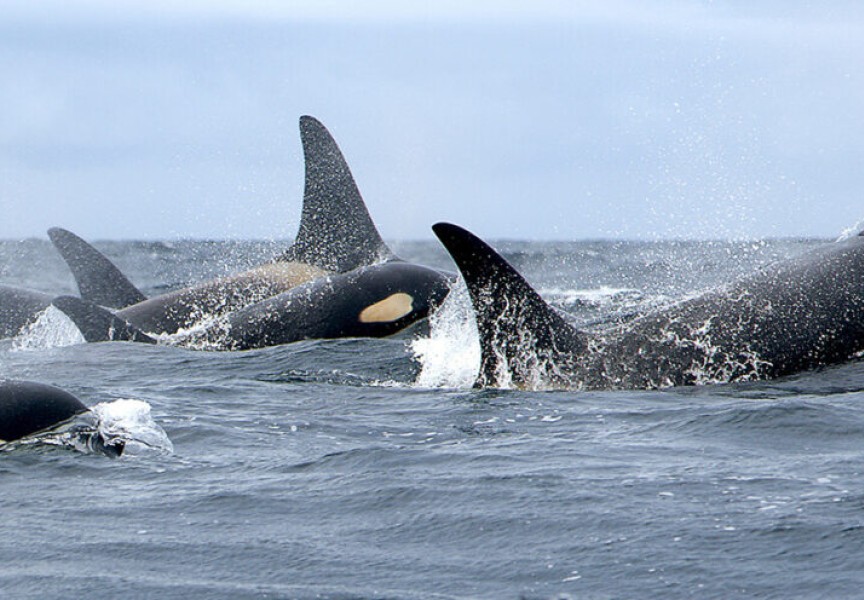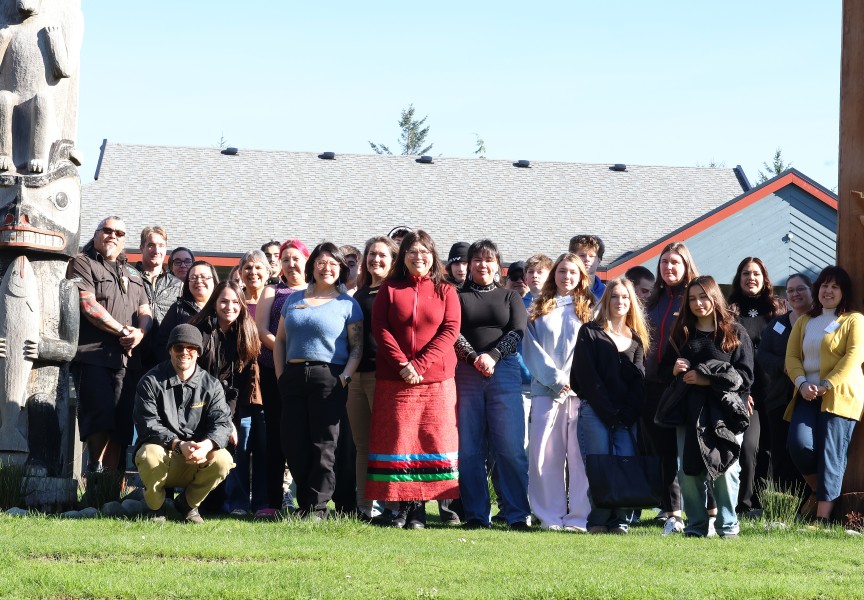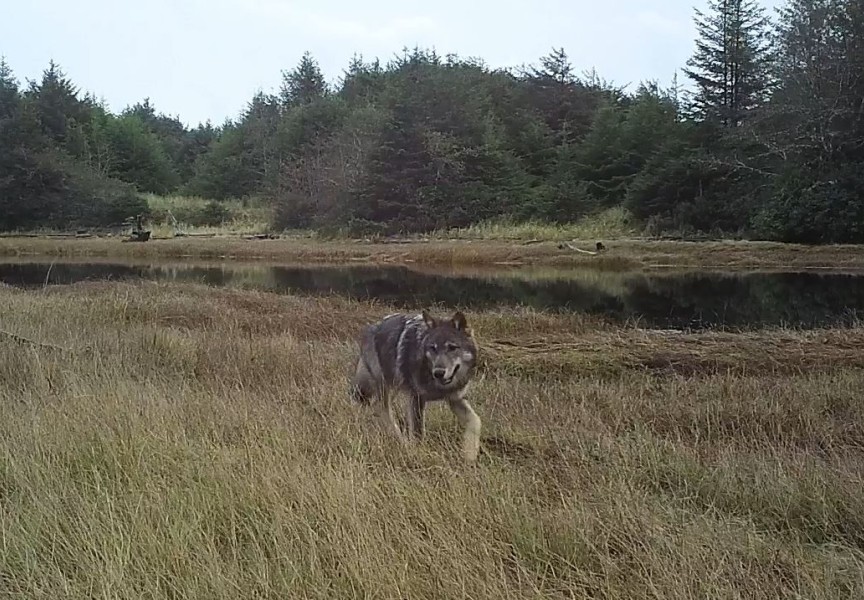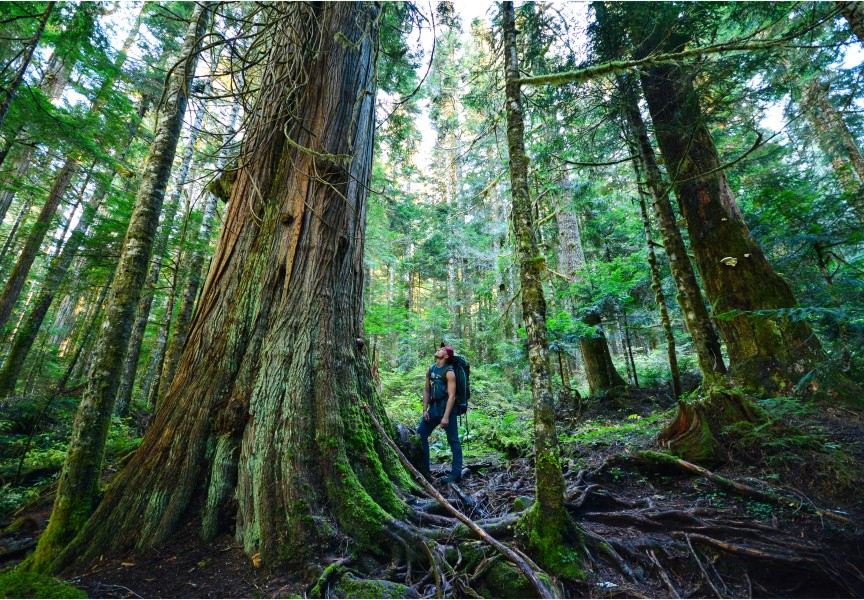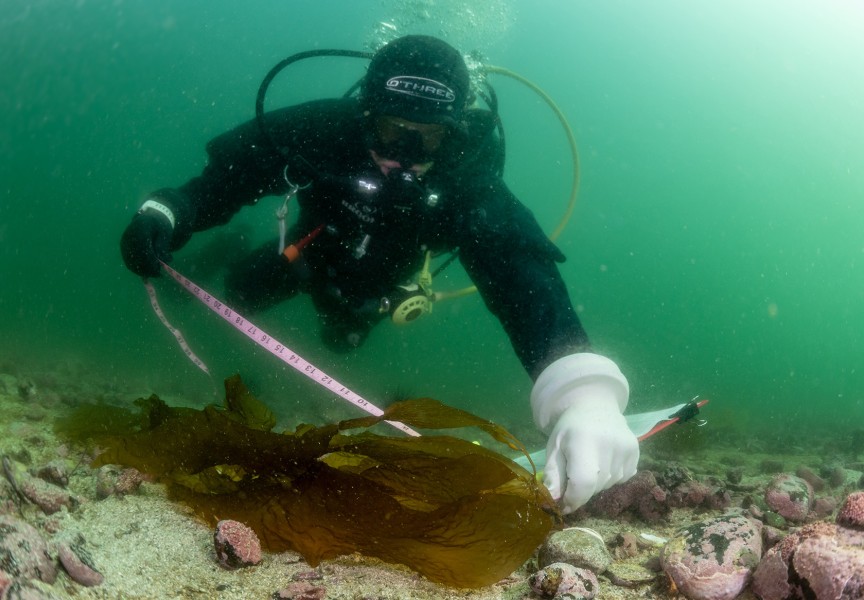On Dec. 25 Highway 4 saw its first highly anticipated unexpected closure when rocks and debris fell along Cameron Lake. Less than 24 hours later, the highway reopened allowing community members of Port Alberni and beyond to travel again.
“Even prior to the Cameron Bluffs fire, Highway 4 has always had [a history of] materials [coming] down periodically,” said Janelle Staite, regional deputy director for the Ministry of Transportation and Infrastructure (MOTI). “It is a very long and steep slope in the area.”
Features installed in the Cameron Bluffs Recovery Project include roadside barriers and rock catchment fencing, but when heavy rain occurs MOTI increases patrols in the area, she shared.
“The fire has actually sort of changed the soil conditions,” said Staite, noting that this warrants more frequent patrols. “If we don't need to close the highway, we won't, but if we feel like there's any concerns from a safety perspective, we absolutely will.”
She added that she does not anticipate an increase in closures through the winter season.
“We've gone through several large rain events and actually larger than the one that happened on December 25, and [it] didn't result in highway closures,” she shared, adding that the rock and debris fell outside of Cameron Bluff area, calling it rare.
On June 14, a letter was sent to Premier David Eby signed by Tseshaht, Tla-o-qui-aht, Huu-ay-aht, Hesquiaht, and Ditidaht First Nations, addressing concerns with the highway and wildfire. The letter called for the provincial and federal governments to make “immediate investments in securing a permanent second access road into the City of Port Alberni”.
For Huu-ay-aht, roughly half of members are living in Port Alberni. But both members living on their traditional territory and in the city are affected, shared their elected chief councillor, John Jack.
“People who live in our territory weren't as affected by the closure itself as they were affected by the detour,” he said. “Because of the increased usage of the back roads and the industrial roads, our citizens found that there was a delay getting into the valley or a delay getting out into the Duncan area.”
“It's in our interest to ensure that there is an alternative route or route plans, and actually create it for not just the Alberni Valley, but just for the entire regional area,” said Jack.
In early October, Huu-ay-aht celebrated the completion of Bamfield Main upgrades, which began in 2020, making the industrial road safer to travel between Bamfield and Port Alberni.
“Using that as a template, investing in an actual highway between the Alberni Valley and the rest of Vancouver Island makes a lot of sense because it does increase the economic capacity of the area, as well as increases the… emergency base stability of the communities and the region as a whole,” said Jack.
On Dec. 25, the Ministry of Transportation and Infrastructure was aware of the rockfall at 5 p.m, said Staite. The highway was promptly closed, and the next morning geotechnical engineers began their slope assessment, giving crews the okay to clear the debris and replace the damaged roadside barrier, she continued.
Although the response to the Dec. 25 closure had the highway reopened the next day, Jack shared that there needs to be conversations about the allocation of resources to those stuck during a shutdown who are unable to find a place to stay while waiting out the road closure.
“We’re putting information on Drive BC, if we believe that there may be a risk of [closures] so that folks are aware when they're leaving the community, or if… they have plans that that potential may exist,” said Staite.

